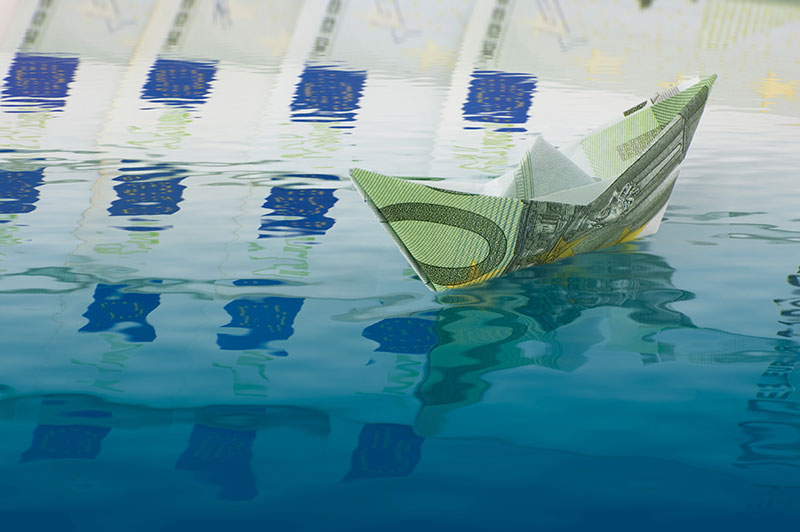SERBIA AS AN INVESTMENT DESTINATION

In a nutshell, Serbia is an attractive investment destination for several reasons.
- Politics - early parliamentary elections held on 24th April 2016 resulted in the ruling Serbian Progressive Party winning absolute majority in the National Assembly commanding 131 out of 250 seats. That will continue with political stability and certainty for the period of 4 years.
- Credit rating - Standard and Poor’s BB- with positive outlook, Fitch BB- with stable outlook, Moody’s Ba3 with stable outlook
- Economic performance – The projected GDP for 2016 was 1.75%, but the GDP vent up to 2.7%. The
projected GDP growth for 2017 is 3%.
In 2016 retail sales in Serbia grew by 7.4% in current prices, and 7.5% in constant prices. Compared to December 2015, the sales grew by 9.0% in current prices, and 6.8% in permanent prices. In December 2016, industrial production recorded a 3.9% hike relative to the same month in 2015, while the industrial production in processing industry grew by 8.2%. Mining production recorded a 3.1% decline, while the power, gas, steam and HVAC supply also fell by 6.3%.
The value of Serbia’s foreign trade in 2016 amounted to $34.14 billion in 2016, which is an 8.1% growth y-o-y compared to 2015, while, expressed in Euros, it stood at 30.82 billion which is an 8.4% hike. Serbia exported a total of $14.88 billion worth of goods and services (an 11.2% growth), and imported $19.26 billion (a 5.7% growth compared to 2015). The export to import ratio stood at 77.3%, compared to 73.5% in 2015. Serbia mainly exported to Italy, Germany, Bosnia and Herzegovina, Romania and the Russian Federation, while Germany, Italy, China, Russia and Hungary were the country’s main import partners.
According to the EY Europe Attractiveness Survey 2016, published at the beginning of June 2016, Serbia is a one of the Top 10 countries by FDI job creation. Also, with + 108% of percentage change, Serbia is the second economy in terms of growth of FDI job creation. - EU membership - Serbia was granted the EU candidacy member in December 2011. Serbia is continuing with EU accession with opening EU accession chapters every few months.
- As the EU pre-accession country,
- Assets are relatively cheap to purchase,
- Low cost labour and other operating expenses are lower than in EU
- Low corporate tax of 15%.
- One Belt One Road/New Silk Road initiative – Serbia is one of the beneficiaries under the OBOR Initiative. It is anticipated the Port of Piraeus become the new major entry port for Chinese imports to Europe and export from Europe. The overland transport between Piraeus and Central and Western Europe will go over the Serbian territory. Food products produced in Serbia can be transported back to China by using OBOR rout.
- Direct and indirect investment incentives and grants:
- Direct – grants and subsidies from the government up to 80% of the costs of the new investment based on the creation of new jobs, location and other criteria
- Indirect – tax and customs duties relieves and incentives for foreign investors
- Strong interest by strategic and financial investors
- Chinese HBIS Group Co., Ltd acquired Smederevo Steel Mill
- the US investment fund KKR, having invested US$1.2 billion in cable and media operator SBB, is considering further investments,
- Hyprop Investments/Homestead /Group Holdings purchased of one of the local shopping malls for €127.7 million,
- Bosh, Fiat, Yura, NEC, STADA Group just few household names–investors in the Serbian companies.
- Proximity to EU and other markets – good position and infrastructure (EU Corridors X and VII) for access to the EU markets.
- Double taxation agreements with many countries allowing foreign investors to reduce further tax exposer from Serbian operations through jurisdiction such as Holland, Cyprus or similar EU countries
- Free trade agreements with many counties or trading blocs – Serbian companies have free access to EU markets, USA and CEFTA countries. Through a network of free trade agreements Serbia companies can also export to Turkey and especially important to Eurasian Customs Union (the only European country with such privilege). Serbia and Russia signed in August 2000 the Free Trade Agreement. Russia and Commonwealth of Independent States (CIS), countries such as Belorussia, Kazakhstan, Armenia, Kyrgyzstan etc formed, Eurasian Customs Union. The Eurasian Economic Union has an integrated single market of 183 million people and a gross domestic product of over US$4 trillion. The Agreement stipulates that goods produced in Serbia, i.e. which have at least 51% value added in the country, are considered of Serbian origin and exported to the Union free of customs duties. This makes all Serbian goods sold in the Eurasian Customs Union pricewise very competitive.
©SEECAP Konsalting
20th March 2017.
